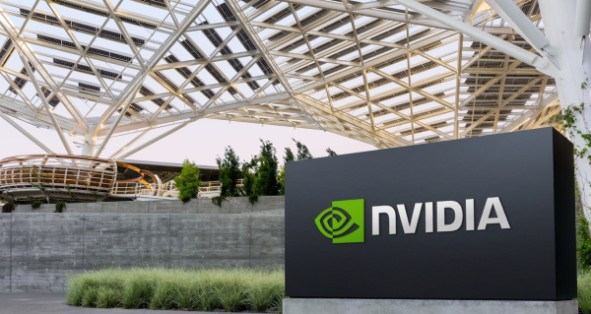NVIDIA Builds Domestic AI Infrastructure with TSMC, Foxconn, and Wistron
NVIDIA has officially announced a major expansion of its AI infrastructure footprint—this time on U.S. soil. For the first time in the company’s history, NVIDIA will manufacture its AI supercomputers and next-generation semiconductors entirely within the United States.
In collaboration with manufacturing giants TSMC, Foxconn, and Wistron, NVIDIA is establishing over one million square feet of dedicated production capacity in Arizona and Texas. This move supports not just chip manufacturing but the entire lifecycle of AI supercomputer development—from silicon fabrication and testing to packaging and system integration.
The initiative signals a fundamental shift in the AI supply chain and reflects growing pressure for technological sovereignty, supply chain resilience, and the onshoring of strategic infrastructure.
NVIDIA Blackwell AI Chips Begin Production in Arizona with Full Supercomputer Builds in Texas
NVIDIA’s new Blackwell chipsets—tailored for AI model training and inference—have officially entered production at TSMC’s advanced node facilities in Phoenix, Arizona. These chips are at the heart of NVIDIA’s next-generation computing systems, designed to handle the computational demands of modern large language models (LLMs) and Generative AI.
Down the supply chain, two major supercomputer manufacturing sites are being launched: one in Houston, operated by Foxconn, and another in Dallas, operated by Wistron. These factories will assemble, test, and integrate the full AI computing platforms powered by the Blackwell architecture.
Mass production is expected to scale significantly over the next 12–15 months, with NVIDIA signaling that these plants will play a pivotal role in meeting global demand for AI processing power.
Building a Domestic AI Supply Chain—From Silicon to System Integration
NVIDIA is addressing more than just chip production. The entire value chain—from chip packaging to end-to-end testing—is being localized. The company is partnering with Amkor and SPIL in Arizona for backend manufacturing processes, which are typically outsourced to Asia. These partnerships support the packaging of advanced chipsets and ensure seamless integration into full-stack AI supercomputers.
By 2029, NVIDIA aims to manufacture up to $500 billion worth of AI infrastructure in the U.S., a bold strategy that emphasizes economic impact alongside technical advancement. It also showcases a commitment to national priorities such as supply chain independence, high-tech job creation, and domestic innovation.
NVIDIA’s AI Factories Signal a Shift in Global Tech Infrastructure
NVIDIA describes these new manufacturing sites as “AI factories”—data center-grade facilities built solely for AI workloads. Unlike traditional compute environments, these factories are optimized for real-time data processing, model training, inference, and advanced analytics.
Tens of such gigawatt-scale AI factories are expected to be built in the coming years to support use cases across sectors like healthcare, financial services, automotive, and telecom.
These facilities will be vital for delivering high-throughput AI capabilities to power applications like digital twins, autonomous systems, virtual assistants, and generative AI tools.
NVIDIA Uses Omniverse and Robotics to Power Smart AI Factories
To streamline operations, NVIDIA plans to use its own technology stack to design and run these factories. Using the NVIDIA Omniverse, the company will build high-fidelity digital twins of its production facilities to simulate workflows, test equipment placement, and optimize throughput before physical deployment.
Additionally, NVIDIA Isaac GR00T, the company’s robotics platform, will automate large portions of the manufacturing process. These smart robots will handle component assembly, automated inspection, and logistics, reducing error margins and increasing productivity across sites.
This integration of AI, robotics, and automation signals a new standard in factory operations, merging digital infrastructure with physical manufacturing in real time.
U.S. AI Manufacturing Expansion Fuels Jobs and Global Tech Leadership
NVIDIA’s U.S.-based production is expected to generate hundreds of thousands of jobs, from factory technicians to software engineers. It also strengthens the U.S. position in the global race to dominate AI, semiconductors, and advanced computing.
According to Jensen Huang, Founder and CEO of NVIDIA, “The engines of the world’s AI infrastructure are being built in the United States for the first time. Adding American manufacturing helps us better meet the incredible and growing demand for AI chips and supercomputers, strengthens our supply chain, and boosts our resiliency.”
A Strategic Move That Sets the Tone for the AI-First Economy
NVIDIA’s announcement isn’t just about moving manufacturing closer to home—it’s a signal to the broader tech ecosystem. As AI becomes foundational to everything from drug discovery and cybersecurity to smart cities and self-driving vehicles, companies will need more localized, secure, and scalable AI infrastructure.
By integrating semiconductor manufacturing with edge computing, digital twins, and AI software frameworks under one national footprint, NVIDIA is building a comprehensive blueprint for the AI-powered future.
















